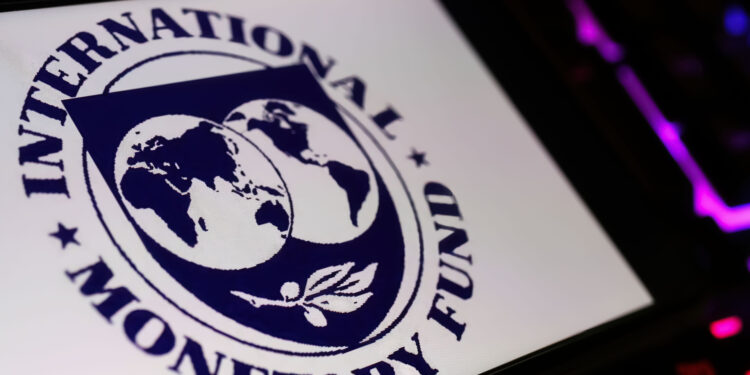- The International Monetary Fund (IMF) yesterday released a statement on its mission to El Salvador in which it noted the risks associated with the nation’s investment in Bitcoin it warned of in 2021 have not yet materialised.
- The IMF also said it was close to reaching agreement on an assistance program with the Central American nation to help reduce its government debt and improve governance and transparency.
- The El Salvador Bitcoin Office has responded to the statement saying the risks the IMF has mentioned will never materialise because of the nation’s robust regulation and transparency around its Bitcoin investments.
The International Monetary Fund (IMF) yesterday released a statement on its negotiations on a program to help strengthen the El Salvadoran economy, noting that the Central American nation’s investments in Bitcoin have been more successful than it expected.
The statement also detailed “preliminary understandings” between the IMF and El Salvadoran government to reduce the nation’s primary balance by 3.5% of GDP over the next three years and commit to a multi-year strategy to improve governance.
When El Salvador first started accumulating Bitcoin in 2021, the IMF warned it was a high-risk strategy and encouraged the nation to reduce its investment in the OG cryptocurrency. The agency now says these risks “have not yet materialised,” but added that further efforts are required to increase transparency and reduce the risks moving forward.
Related: El Salvador Becomes The First Country To Adopt Bitcoin As Legal Tender
Statement Marks Change of Tone on Bitcoin
The statement from the IMF mission, which is led by Raphael Espinoza, marked a change in tone with regard to its stance on Bitcoin. Previously, the IMF had been starkly negative on the Central American nation’s investment in crypto, but in this statement mentioned that the risks it warned of had not eventuated:
On Bitcoin, while many of the risks have not yet materialized, there is joint recognition that further efforts are needed to enhance transparency and mitigate potential fiscal and financial stability risks from the Bitcoin project. Additional discussions in this and other key areas remain necessary.
 IMF Statement on El Salvador
IMF Statement on El SalvadorEl Salvador began investing in Bitcoin in 2021 and has spent the past few years gradually accumulating. The Central American nation has also made Bitcoin legal tender, established Bitcoin strategic reserves, launched Bitcoin mining projects, and has plans for a tax-free Bitcoin City.
Statement Outlines Other Economic Measures
The statement also covered many other aspects of the El Salvadoran economy, and suggested the parties are close to coming to an agreement on a broad IMF assistance program, saying:
Progress has been made in the negotiations toward a Fund-supported program, focused on policies to strengthen public finances, boost bank reserve buffers, improve governance and transparency, and mitigate the risks from Bitcoin.

 IMF Statement on El Salvador
IMF Statement on El SalvadorThe statement went on to outline preliminary understandings on a 3.5% reduction of the nation’s primary balance sheet over the next 3 years to achieve sustainable public debt. This would be achieved through “a balanced set of measures, with initial focus on rationalizing the public wage bill, while providing space for critical social and infrastructure spending.”
The statement also outlined an agreement to improve the nation’s governance and the general investing environment through crackdowns on corruption:
Authorities are well advanced in preparing legislative proposals to address corruption, money-laundering vulnerabilities, and weaknesses in the procurement frameworks. This work is being supported by development partners and aims to ensure frameworks are consistent with international best practices.

 IMF Statement on El Salvador
IMF Statement on El SalvadorEl Salvador Responds, Says Risks Will “Never Materialise”
In an interview with Forbes, the head of El Salvador’s Bitcoin Office, Stacy Herbert, responded to the IMF’s statement saying the risks the agency has warned of will never eventuate:
We welcome this acknowledgment, and we believe that these risks will, in fact, never materialize in El Salvador.

 Stacy Herbert, Head of El Salvador’s Bitcoin Office
Stacy Herbert, Head of El Salvador’s Bitcoin OfficeRelated: President Bukele’s Big Bitcoin Bet Looks Like a Winner as He Heads for a Huge Victory
Herbert explained why she believes these risks aren’t a problem for El Salvador, pointing to the effectiveness of the nation’s Bitcoin regulatory environment:
We have established the world’s most robust regulatory regime related to bitcoin, and this has helped us maintain the highest standards for bitcoin companies operating within our jurisdiction. We, furthermore, have made public our bitcoin treasury address and this is an unprecedented level of transparency for any government.

 Stacy Herbert, Head of El Salvador’s Bitcoin Office
Stacy Herbert, Head of El Salvador’s Bitcoin OfficeCredit: Source link




















